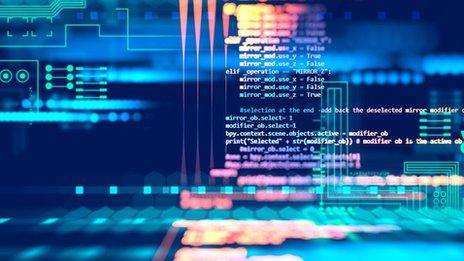Vote Leave's Dominic Cummings reported to Commons
- Published
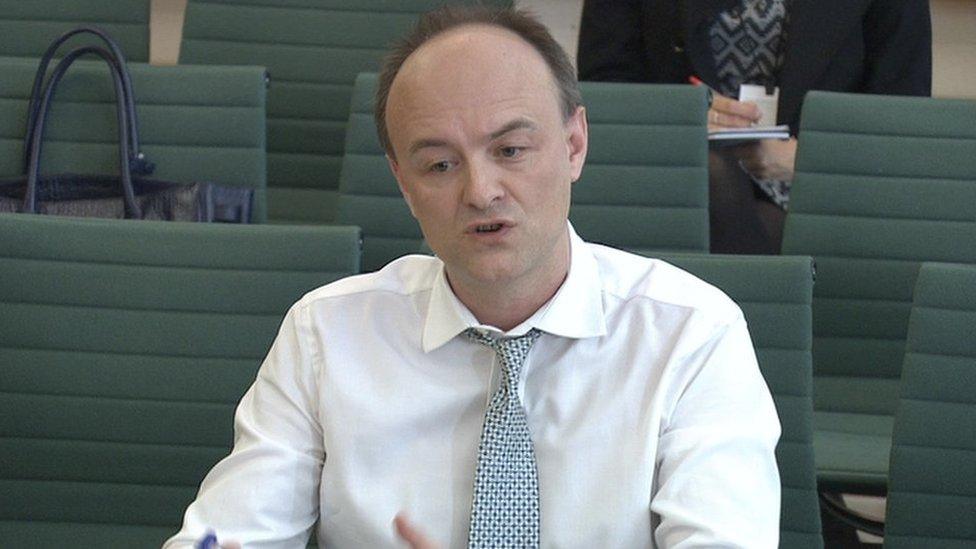
Dominic Cummings appeared before MPs in April 2016
Vote Leave director Dominic Cummings is being reported by an MPs' committee for refusing to take part in their inquiry into fake news.
The Digital, Culture, Media and Sport Committee is reporting Mr Cummings to the Commons over the matter.
Its chairman said it was the first step in a process which could result in a finding of contempt of Parliament.
Mr Cummings has accused the committee of "grandstanding PR, not truth-seeking".
Last week the committee issued formal summonses to Mr Cummings and Alexander Nix, of Cambridge Analytica, to appear before them on 22 May and 6 June respectively. Mr Nix has since said he will give evidence to the committee on 6 June.
But Mr Cummings responded to the summons in a post on his blog, external last week, in which he said he had explained he could not attend on the dates requested and that there were "legal issues" because of a separate inquiry by the Electoral Commission.
He wrote: "I said that if they issued a summons instead of discussing possible dates like reasonable people, then it would be obvious they are not interested in friendly cooperation to uncover the truth. So I will not give evidence to this committee under any circumstances. (I may to other committees depending on behaviour.) "
The DCMS committee says it wants Mr Cummings to respond to "allegations made against the Vote Leave campaign during our inquiry" and to "clarify allegations about the unlawful coordination of EU referendum campaigns
It says both the Information Commissioner's Office and the Electoral Commission say that the committee's hearings "will not hinder their investigations in any way".
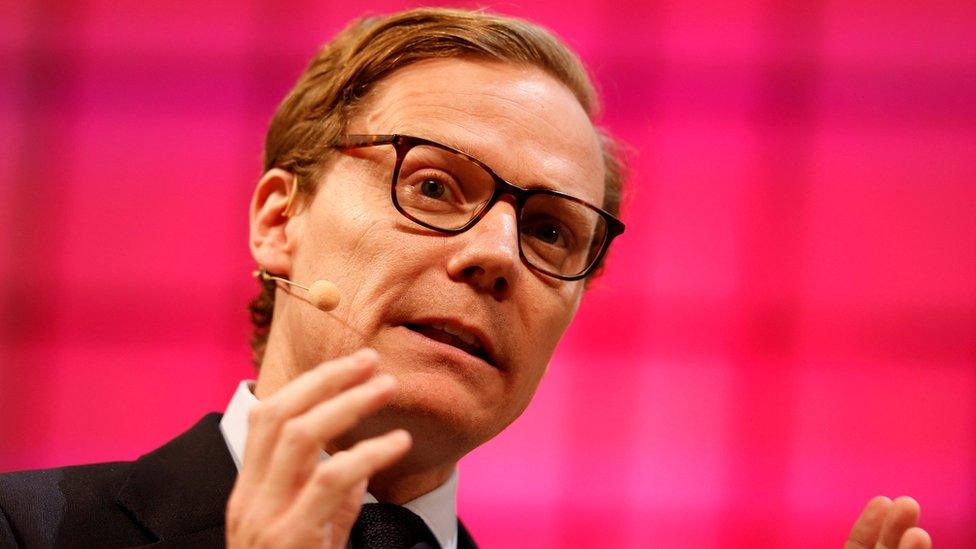
Mr Nix will answer MPs' questions in June
Chairman Damian Collins said: "We are disappointed that Dominic Cummings has not responded positively to our requests for him to appear. His reasoning that he must delay giving evidence due to ongoing investigations simply does not hold up.
"Reporting the matter to the House is a first step which could result in a decision that a contempt of Parliament has been committed."
It could lead to a debate and an inquiry by the Commons Privileges Committee, which could in turn recommend further action, but any sanctions can only be imposed by the House of Commons itself.
Two former News of the World employees were found in contempt of Parliament in 2016, over evidence they gave to MPs in a phone hacking inquiry - in what was believed to be the first such finding in decades. But while a motion formally criticising them was approved by MPs - they were not ordered to appear at the Commons to be publicly admonished.
There is no formal list of sanctions that the House can impose and the House of Commons' power to punish non-MPs for contempt is untested in recent times.
The MPs are looking at how consulting firm Cambridge Analytica harvested the data of millions of Facebook users worldwide. The London-based firm - which announced it was closing earlier this month - is accused of acquiring data from up to 87 million Facebook profiles for use in political campaigns. The firm has denied any wrongdoing.
There have also been questions about links between Cambridge Analytica and the Vote Leave campaign. Vote Leave spent £2.7m on the services of Canadian digital agency AIQ in the run-up to the June 2016 EU referendum and the firm has admitted that it also conducted work for Cambridge Analytica's parent firm SCL.
- Published22 March 2018
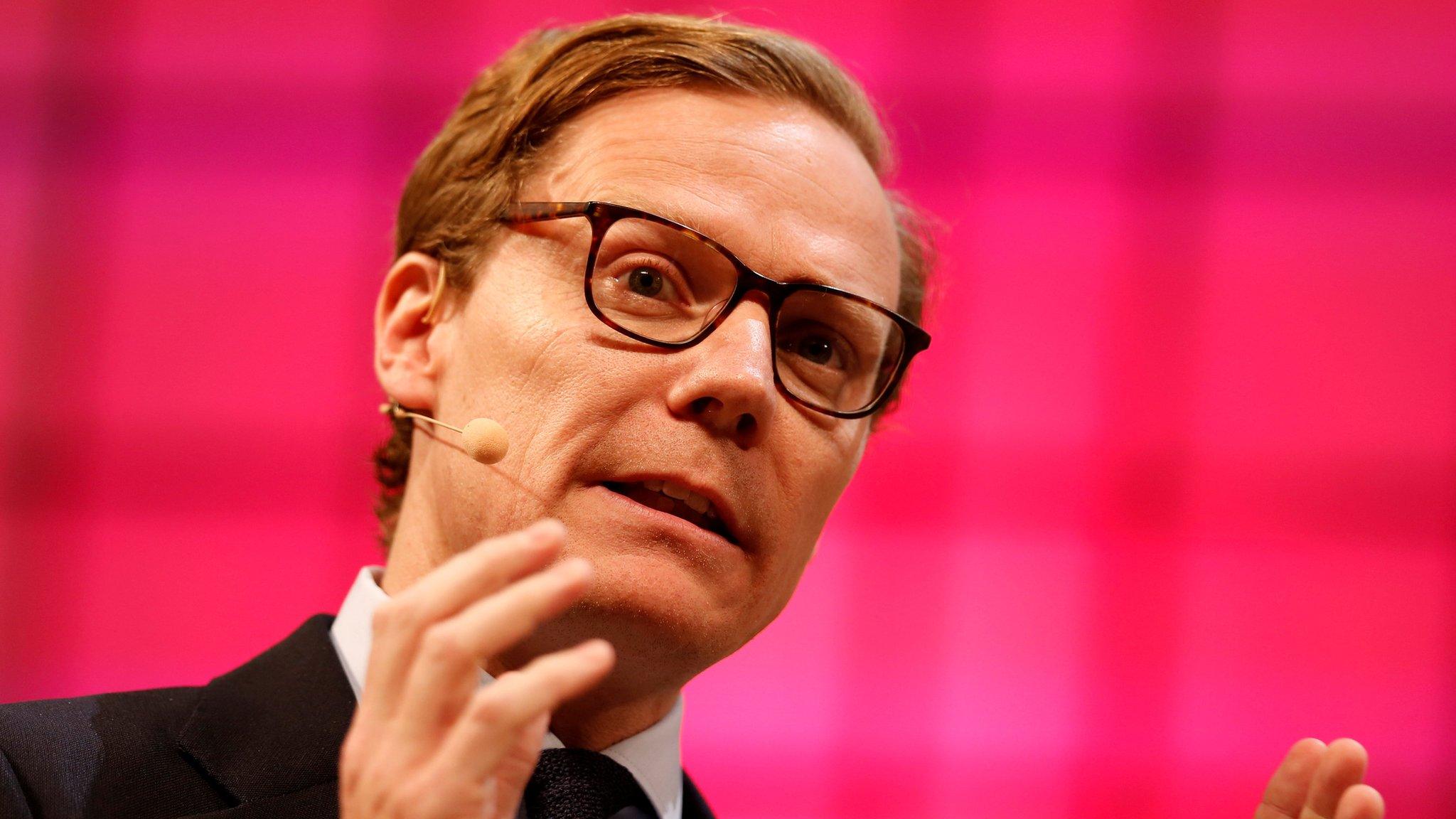
- Published21 March 2018
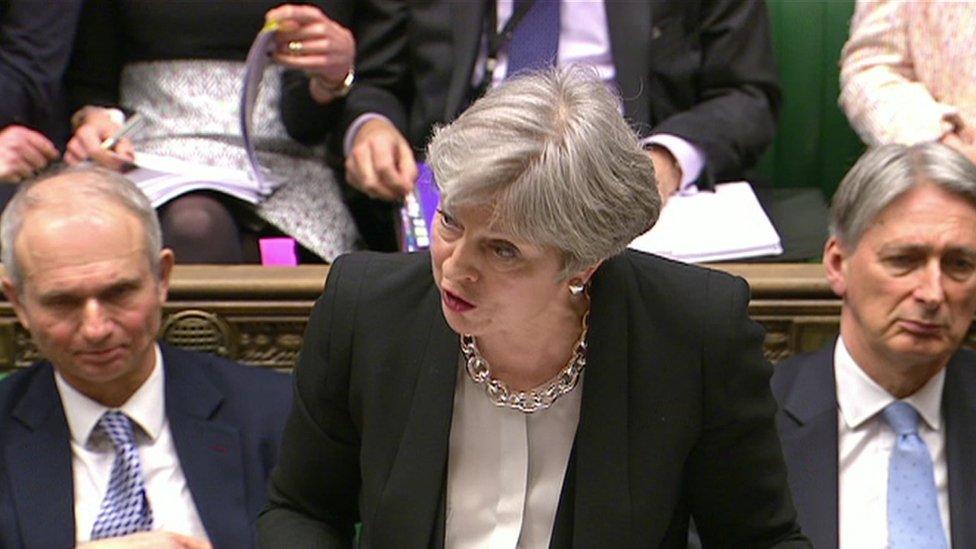
- Published21 March 2018
